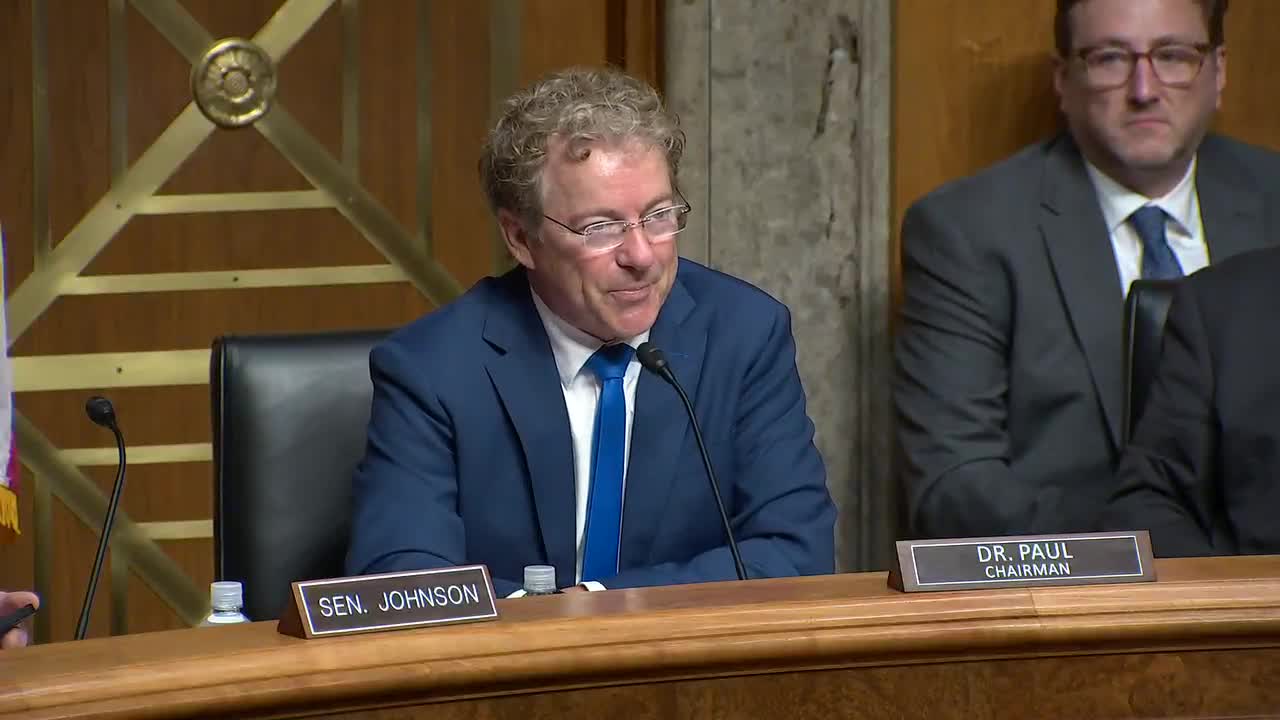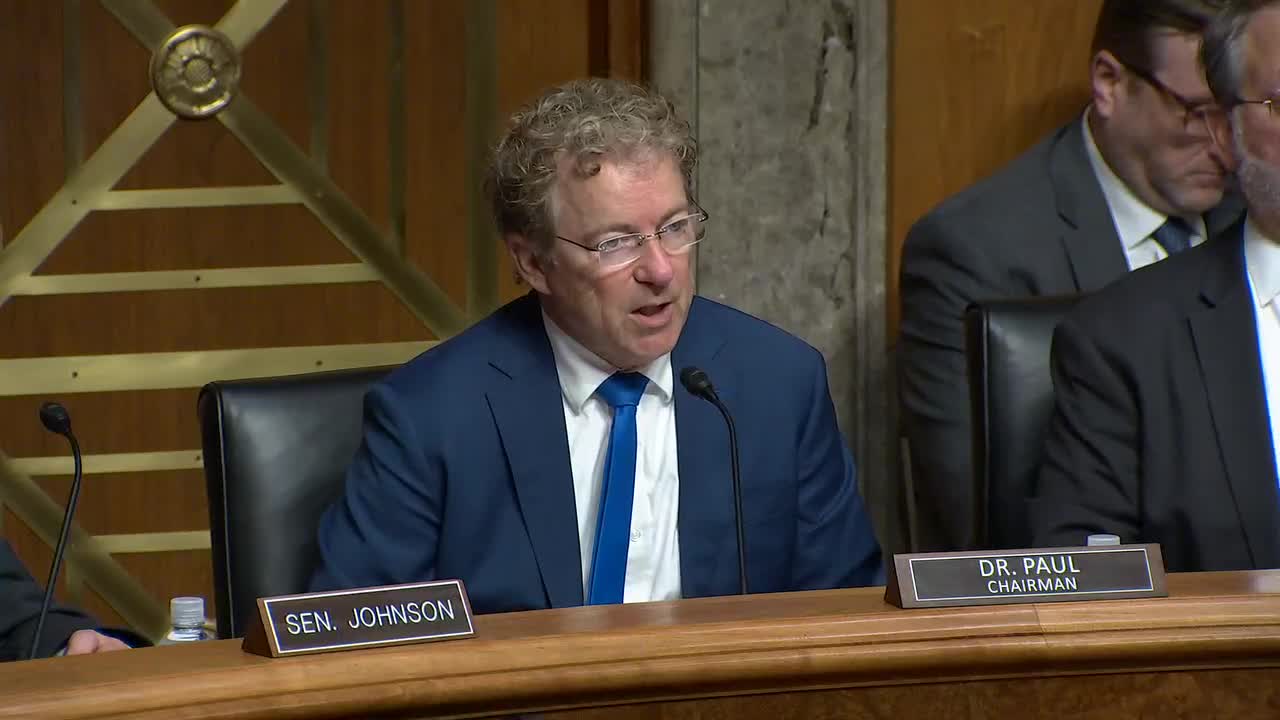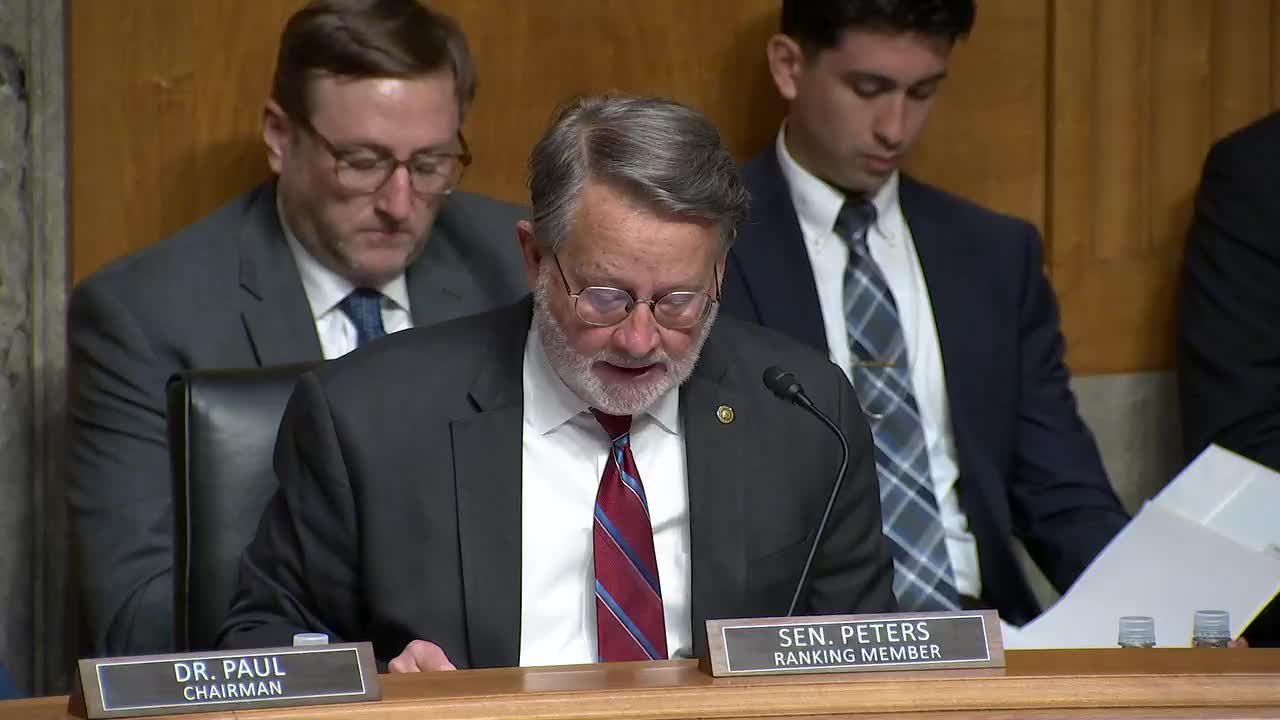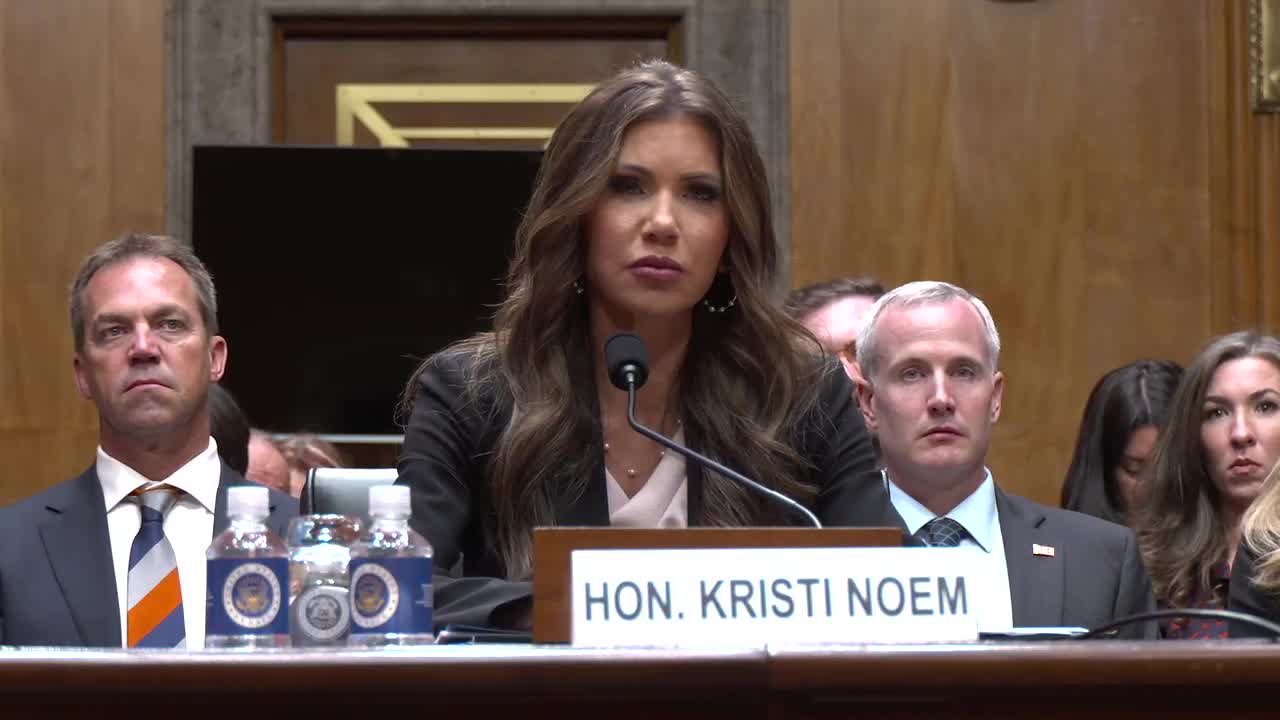Article not found
This article is no longer available. But don't worry—we've gathered other articles that discuss the same topic.

Senators press DHS on border control, wall costs and use of Guantanamo to hold migrants

Senators press DHS on alleged risky pathogen research; Noem schedules NBACC review

Senators press DHS on FEMA preparedness, grant cuts and hurricane season readiness

